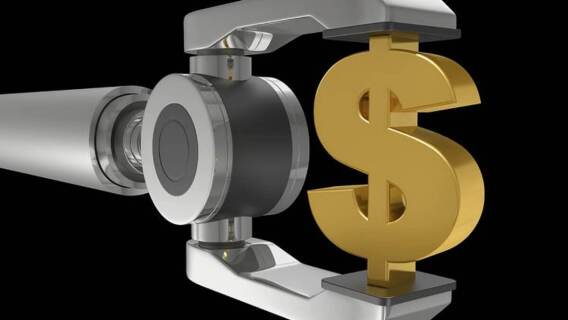United Nations statistics highlight the major changes that are transforming the workforces, manufacturing strategies, and societies of the more advanced Asian countries. Namely, aging populations and falling birth rates, both of which require a more automated workforce, to the benefit of robot stocks.
Based on current falling fertility rates, South Korea, which has the lowest birth rate in the world, is forecast to become the “most aged” population by 2044. This means a 35% decline in the working-age population (20–64 years old) from now until 2050. Taiwan and China will see 28% and 21% reductions, respectively.
[text_ad]
For China, this means a decrease of over 186 million people in this age group. Therefore, rising wages have led to increases in the number of robots used in manufacturing in China, which now exceeds robot density in the U.S.
In Japan, more than 10% of the population is now aged 80 or older and almost 30% is over the age of 65. Both are records.
Europe is not far behind. Just over 20% of the EU’s population of 450 million is 65 years or older and its median age is now almost 45 years of age.
The result of all these demographic changes is that in construction, agriculture, and manufacturing, all these countries are increasingly replacing vanishing workers with robots.
And with the growth of artificial intelligence (AI), they’re even replacing jobs in customer service such as helping customers in Tokyo convenience stores. The trend is clear, the sector exciting, but what companies and stocks are best positioned to capture sales and profits? Here are a couple of ideas.
2 Robot Stocks for an Evolving Workforce
Rockwell Automation (ROK), one of the largest robotics companies in the world, will benefit from this trend. It specializes in machines and robots that automate industrial processes.
I like Rockwell because it offers the “picks and shovels” to the entire industry, which spans from sensors to software.
Shares are up 2.4% so far this year but have risen 6% in the last six months.
Another company I have followed for some time is Fanuc (FANUY), one of Japan’s largest robotics companies.
Based in Oshino, a village at the foot of Mount Fuji, Fanuc is the world’s leading manufacturer of computerized numerical control (CNC) devices that are used in machine tools.
Fanuc, whose name is an acronym for Fuji Automatic Numerical Control, has been a world leader in robotics since the early 1970s. It was founded as a wholly-owned subsidiary of Fujitsu in 1955 after that electronics giant decided to enter the factory automation business.
Today Fanuc is as global as it gets with over 250 joint ventures and offices in over 46 countries with a commanding 65% share of the world market. For example, industrial robot manufacturer Shanghai-Fanuc Robotics Co. Ltd. has a plant in Shanghai.
The company is also expanding in Europe, quadrupled the size of its Spanish sales hub near Barcelona, and already has 10 facilities, including in Germany, Italy, and Turkey.
Over time, Fanuc has become a key supplier to some of the world’s most important industries, selling some 500,000 robots overall. Major car manufacturers, including Tesla, often assemble and weld with Fanuc robots.
Fanuc should benefit from robust demand from developed markets as well as China as its manufacturing wages continue to increase and manufacturers look to robots to increase productivity. You can find Fanuc robots at Amazon warehouses as well as the shop floor of General Motors.
Use of industrial robots has allowed companies like Panasonic to run factories that produce 2 million plasma television sets a month with just 25 people
Fanuc’s stock offers investors a clean balance sheet with zero debt and a huge cash cushion. Shares in Fanuc, which boasts gross margins of almost 40%, are down about 2.9% from their 52-week high, reached just last month.
Join the Cabot Explorer today to follow this and other promising global trends and learn about our top stock picks from around the world.
[author_ad]
*This post has been updated to reflect current market conditions.

